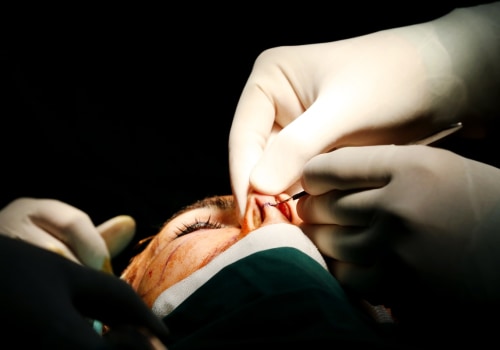Medicaid rarely covers elective cosmetic surgery as it is not medically necessary in most cases. This type of procedure reshapes healthy tissue to alter or improve appearance, and while it may benefit mental health by improving self-esteem, it is not considered a medical necessity. Medicaid programs are less likely to cover cosmetic surgery, though some states may make an exception for certain procedures, such as breast reconstruction surgery after a mastectomy to treat breast cancer. Medicare does not cover surgeries for cosmetic reasons, but if a procedure has a medical indication, they may pay for it.
If you are having a blepharoplasty, botulinum toxin injection in your face or neck, paniculectomy, rhinoplasty, or vein ablation, ask your healthcare provider if you have been asked for prior authorization before the procedure. This will let you know if Medicare will cover you and how much you are expected to pay out of pocket. There are some medically necessary plastic surgery procedures that can also be classified as cosmetic surgery procedures. For example, Medicaid is more likely to pay for abdominal band surgery (laparoscopically adjustable gastric band) because this weight-loss procedure generally costs less than other treatment alternatives.
Medicaid is also more likely to cover plastic surgery because it reconstructs facial and body defects, which are often medically necessary. At the opposite end of the spectrum, Medicaid is less likely to pay for gastric bypass because this weight-loss surgery is often more expensive than other methods. Medicaid is more likely to pay for knee replacement surgery (arthroplasty) when damage to the joint of the patella, femur and tibia causes pain, stiffness, or reduced range of motion. This cosmetic surgery generally reshapes healthy stomach muscles and removes adipose tissue that poses little risk to the patient.
Understanding how Medicaid covers surgery can relieve some of the stress by making it easy to predict how much of the cost of the procedure may be your responsibility. Medicaid can pay for plastic surgery to correct a deviated septum because a crooked nasal airway represents a facial defect that makes it difficult to breathe. Surgical procedures generally fall into three categories, and Medicaid programs tend to treat each type differently. Given the complex criteria, a patient's ability to gather appropriate documentation determines how long it takes Medicaid to approve weight-loss surgery.
Medicaid rarely pays for liposuction because targeted fat reduction generally falls under the category of cosmetic surgery. Therefore, Medicaid could take several months to approve gastric bypass surgery, as it must show that other, less expensive methods are not adequate to meet your needs, a much more difficult case to present.







